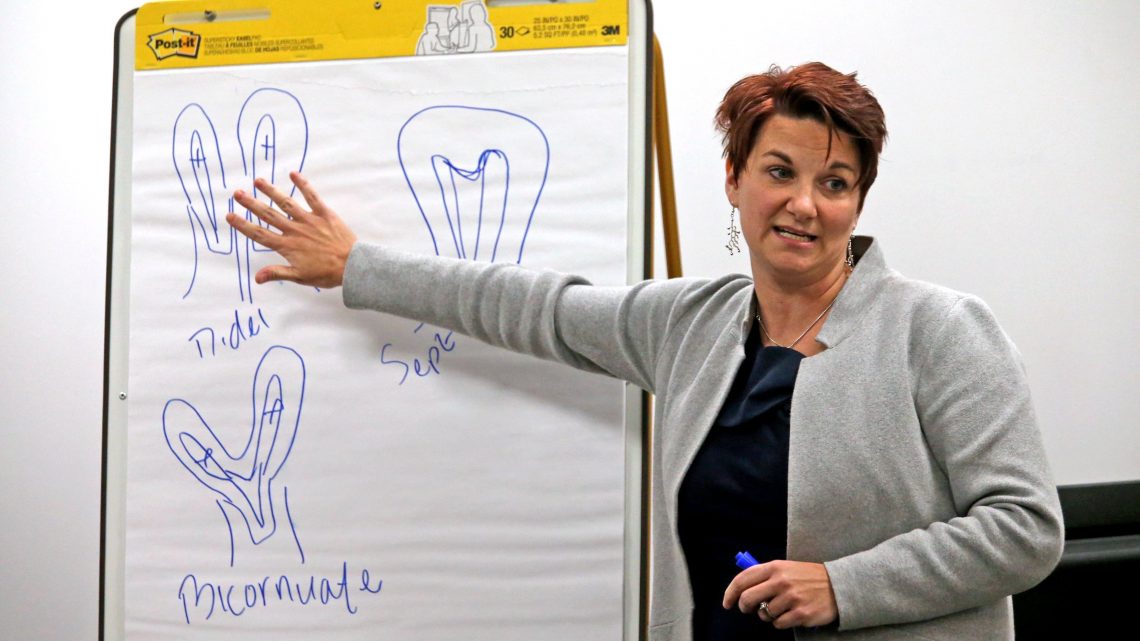
Missouri’s Spreadsheet of Women’s Periods Wasn’t Illegal — But Experts Think It Was Pretty Creepy
October 31, 2019Want the best of VICE News straight to your inbox? Sign up here.
Turns out the Missouri Department of Health has been keeping a spreadsheet tracking the menstrual cycles of thousands of unnamed women who had abortions at a Planned Parenthood in St. Louis, the state’s sole abortion clinic.
Legally, health officials are allowed to keep such information — in fact, 46 states require them to for public health purposes. The confidential data collection can help create programs that ensure people avoid unintended pregnancies and inform good policy.
But privacy and abortion rights advocates say the way Missouri was keeping and using the data is shady and could erode patient trust, especially when women often have to give up information about their menstrual cycles every time they go to the doctor.
“Just because they have access to the data doesn’t mean they should have used it in that way,” said Elizabeth Nash, senior state issues manager at the Guttmacher Institute, a nonprofit group that supports abortion rights and tracks abortion data. “It’s outside where other states have gone.”
Missouri’s health department says it has its reasons for maintaining the spreadsheet, which also contained the dates of the women’s previous medical procedures and the gestational ages of their fetuses. Officials were apparently using the data to investigate any potential failed abortions at the clinic.
The state ultimately decided not to renew the clinic’s license over “grave concerns” about patient safety. That would leave Missouri without an abortion provider.
“The state is so clearly trying to close this abortion clinic, and the political environment is so hostile,” Nash said.
READ: This state could become the first without an abortion clinic
Dr. Randall Williams, the state’s health director, confirmed the spreadsheet’s existence during an administrative hearing Tuesday that could ultimately determine whether the state allows the Planned Parenthood to continue providing abortions.
He said he didn’t personally ask for the spreadsheet and that he’d never seen it before the hearing. But the document was attached to an email titled “Director’s Request,” according to Planned Parenthood’s lawyers.
One Missouri state legislator, Democratic House Minority Leader Crystal Quade, has even called for an investigation into whether patient privacy was compromised when the spreadsheet was created and shared in the course of the state’s investigation. (The state says it wasn’t.)
“Just because they have access to the data doesn’t mean they should have used it in that way.”
“If you collect this information and it’s in a database, what happens when that data is breached? What happens if somebody who doesn’t need access to that data gets access to it?” said India McKinney, the director of federal affairs at the Electronic Frontier Foundation, a nonprofit organization fighting for digital privacy.
“If it’s not necessary, you really need to not be collecting it,” she added.
But the state’s health department said in a statement Wednesday night that the information, which the state has a legal obligation to collect, was used for legitimate public health purposes. The department ultimately wanted to determine whether any patients returned to Planned Parenthood because their abortion had failed — and whether the clinic had properly reported those incidents.
An investigator took data from 3,000 abortions that took place in 2018 and narrowed down to 67 instances when the same patient might’ve had multiple abortions in a single year. The state found four instances of incomplete abortions and decided not to renew the clinic’s license.
“This information, in fact, was important in the investigative process in ensuring that facilities are safe for patients,” Lisa Cox, a spokesperson at the state’s department of health, said in a statement.
In addition to asking the date of women’s last periods or the gestational age of the fetus, most states, including Missouri, legally require that abortion providers collect other information about every procedure: the age of the patient, their race and marital status, and whether the procedure was surgical or medication-induced.
READ: 7 days inside an anti-abortion summer camp training the next generation of activists
The states can then transfer the information to the CDC so the federal agency can determine how many abortions happened in a single year and figure out what procedures were used. The data is usually released in aggregate to the public to avoid detailing individual patients' abortion circumstances.
“If you have a spreadsheet, clearly you’re trying to match up some information — there are individual patients there that could be identified,” Nash said.
In Missouri, each individual woman’s data is put on a form called an “Induced Termination of Pregnancy” report, which the clinic sends to the state’s health department. While data about a person’s last menstrual cycle can be useful in determining the gestational age of a fetus, it’s unclear why it would aid the state’s investigation into any alleged wrongdoing at the clinic.
One physician speaking to the Kansas City Star also noted that people often inaccurately self-report the first day of their menstrual cycle, anyway. It’s not always reliable information to base an investigation on.
In other states, questions can go beyond a reasonable public health concern and can seem, well, creepy.
Some states, for example, ask patients why they want an abortion in the first place; Louisiana and Florida require patients to disclose whether the pregnancy was the result of rape or incest. Some states even require women to disclose how they’re paying for their abortions.
Cover: Dr. Colleen McNicholas, chief medical officer at Planned Parenthood, answers questions by Planned Parenthood attorney Richard Muniz on the third day of hearings between Planned Parenthood and Missouri Department of Health and Senior Services on whether Planned Parenthood can keep its abortion license on Wednesday, Oct. 30, 2019, in St. Louis. (Laurie Skrivan/St. Louis Post-Dispatch via AP)


